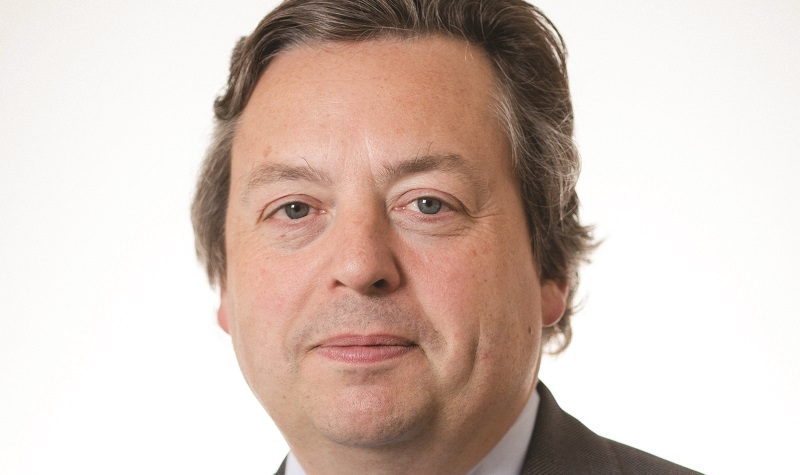Francis Brooke (pictured) and Colin Morton have clawed their way back to the top of the Sanlam half-yearly analysis of best-performing income funds amid a challenging market backdrop, which has toppled other titans in the sector.
The latest equity income league table analysis was turned on its head with six funds dropping out of its top tier ‘white list’. Sanlam ranks performance over a five-year period with a pecking order of the best, middling and worst income funds, which are allocated to the ‘white’, ‘grey’ and ‘black’ lists respectively.
Slater Income fund, which took top spot in the white list just six months prior, and the Marlborough Multi Cap Income fund, managed by Siddarth Lall, which dropped 13 places in the league table after a year of weak performance, were among the casualties.
Kevin Murphy and Nick Kirrage, who run Schroder Income, were also ousted from the white list, despite being ranked first in terms of performance in 2018, due to higher volatility and delivering weaker total dividend income. The Schroder Maximiser fund, previously sixth in the white list, dropped into the grey list for similar reasons.
Comeback for Brooke and Morton
The Troy Trojan Income fund, managed by Brooke, and the Franklin Templeton UK Equity Income fund run by Morton staged a dramatic comeback in 2018, with the former ultimately claiming the top spot in Sanlam’s white list.
The £2.7bn fund from Troy Asset Management jumped an impressive 37 spots since the last Sanlam report six months ago, snagging first place from Slater Income. Brooke’s fund had a challenging year in 2017, suffering several stock related setbacks, Sanlam noted. The Trojan Income manager told Portfolio Adviser that most of the fund’s woes were down to its former stake in Provident Financial, which saw 70% wiped off the value of its share price after a series of profit warnings and an FCA probe into its credit card subsidiary.
Trojan Income produced a negative total return last year of -7.6%, according to the Sanlam report, though this was stronger than its contemporaries in the white list.
Meanwhile Morton’s fund made a strong reappearance, bouncing back from the grey list to fourth on the white list. The fund, which was one of the biggest downward movers in Sanlam’s previous report, generated a total return of -9.8% over the period.
Biggest movers
By far the biggest downward mover was the Chelverton UK Equity Income fund, which plunged 39 places from the white list to the black list, after being in the income study’s top tier since January 2017.
Sanlam said the fund, managed by David Taylor and David Horner, suffered from stock-specific issues in its small to mid-cap holdings during the year, returning a disappointing -14.9%. The £642m fund had the worst standard deviation over five years of the 59 funds included in the study.
Merian UK Equity Income and Ardevora UK were also highlighted as big droppers, plunging 28 places and 33 places respectively from their previous positions in the grey list to the black list.
Sanlam said funds that follow an out of favour style may wind up on the grey list but added a demotion to the middle tier could be an early warning signal for a fund in decline.
The black list is dominated by consistent underperformers and “may indicate the need for remedial action”.
Usual suspects
Besides the additions of the Troy Tojan Income and Franklin UK Equity Income fund, the remaining top five performers remained unchanged.
The Axa Framlington Monthly Income fund and LF Miton UK Multi Cap Income fund held onto their second and third place positions respectively. Adrian Frost’s Artemis Income fund also clung close to the top though it was knocked from fourth place position by Morton’s £541m UK equity income fund.
The laggards at the bottom of the black list were also a collection of the usual suspects. The Unicorn UK Income Fund, the M&G Dividend Fund, HSBC Income Fund found themselves in the bottom five performers once again.







